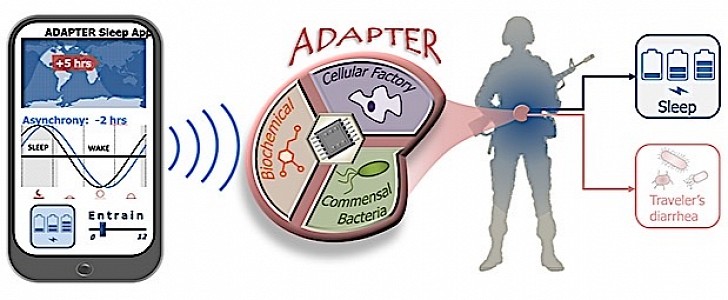I am currently treating myself to a book series called Rise of the Republic (by James Rosone). It’s a science fiction series depicting a future when humanity is expanding its military reach into the neighboring solar systems with the help of warships designed by Musk Industries (the SpaceX of today) and Blue Origin. As it does this, humanity stumbles upon a very hostile alien species, galactic-empire-level, called Zodarks.
Tasked with fighting the Zordarks in space are the Musk- and Blue Origin-made spacecraft, but down on the surface of the planets, that falls into the hands of the Delta Special Forces. These guys are the elite military troops, the best Earth has to offer, and they rely on very advanced technologies to keep them going. Including hardware that automatically injects nanites into the bloodstream to take care of injuries.
Now, in real life, we’re not even close to developing nanites, but DARPA is working on something that could forever change medical aid on the battlefield and also bring us closer to the Rise of the Republic future we talked about above.
We’re not talking about nanites here needed to fix injuries, but it might very well be the first step. The agency is currently engaged in something called the ADvanced Acclimation and Protection Tool for Environmental Readiness (ADAPTER) program that seeks to develop technologies that would help soldiers better cope with jet lag and foodborne pathogens, by modifying their own physiology on demand.
DARPA describes ADAPTER as “a hybrid device, controlled by the warfighter, that boosts and extends performance during field forward missions.” Three teams have been chosen to develop prototypes of these devices that will incorporate engineered cells and biochemicals.
Northwestern University is working on a wirelessly-controlled bioelectronic implant that can release on demand into the soldier’s body peptide-based therapies to help them better adapt their “central and peripheral circadian clocks.”
A team from Stanford works on an implant that releases melatonin on demand for up to 30 days, while the Massachusetts Institute of Technology (MIT) is developing a “swallowed device that deploys in the gut,“ releasing compounds to kill foodborne pathogens and neutralize toxins.
Full details on the ADAPTER program, currently in Phase 1, can be found at this link.
Now, in real life, we’re not even close to developing nanites, but DARPA is working on something that could forever change medical aid on the battlefield and also bring us closer to the Rise of the Republic future we talked about above.
We’re not talking about nanites here needed to fix injuries, but it might very well be the first step. The agency is currently engaged in something called the ADvanced Acclimation and Protection Tool for Environmental Readiness (ADAPTER) program that seeks to develop technologies that would help soldiers better cope with jet lag and foodborne pathogens, by modifying their own physiology on demand.
DARPA describes ADAPTER as “a hybrid device, controlled by the warfighter, that boosts and extends performance during field forward missions.” Three teams have been chosen to develop prototypes of these devices that will incorporate engineered cells and biochemicals.
Northwestern University is working on a wirelessly-controlled bioelectronic implant that can release on demand into the soldier’s body peptide-based therapies to help them better adapt their “central and peripheral circadian clocks.”
A team from Stanford works on an implant that releases melatonin on demand for up to 30 days, while the Massachusetts Institute of Technology (MIT) is developing a “swallowed device that deploys in the gut,“ releasing compounds to kill foodborne pathogens and neutralize toxins.
Full details on the ADAPTER program, currently in Phase 1, can be found at this link.

